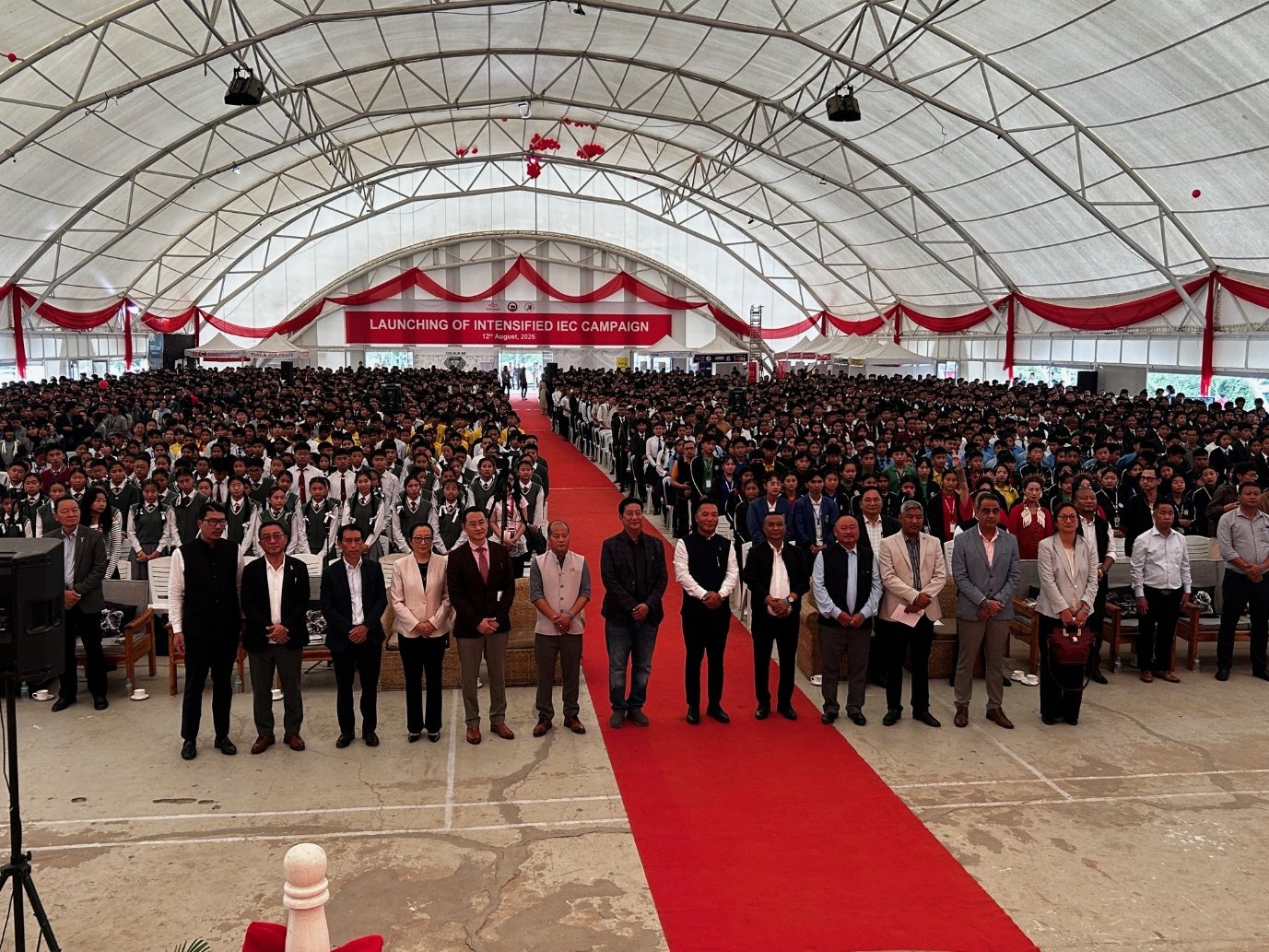Minister for Health and Family Welfare P Paiwang Konyak on Tuesday officially launched
A two-month campaign of the Nagaland State AIDS Control Society (NSACS) on Intensified Information, Education and Communication on HIV and STI prevention and control in Nagaland at the NBCC Convention Centre, Kohima .
Speaking at the launching event as the special guest, Konyak said that information is not just data, but empowerment; education is not just learning, it is transformation; and communication is not just words, but connection.
He highlighted that over the next two months, the health department will reach out to communities in every corner, urban and rural, young and old- taking with them not just information, but inspiration. “We know that information alone is not enough; it must be communicated in ways that connect with people’s lives, beliefs and aspirations,” he stated.
The Minister also mentioned that Nagaland stands at a crucial moment. As per Integrated Counselling and Testing Centre (ICTC) program data, Nagaland HIV epidemic has been moving towards a steady decline over the past few years. However, Konyak said that the concern is that the prevalence of HIV amongst the adult population (15 to 49 years) is at 1.37% which is still at the second highest prevalence in India.
In the context of Nagaland, the minister said that the epidemic is driven by transmission through unprotected sex with an infected person through the sexual route which contributes to 85% of the infection, while the rate through injecting routes from an infected needle and syringes is at 8.7%, and from an infected parent who are not on treatment to the unborn child stands at 5.4%.
He stated that as of June 2025, a total of 15,323 People Living with HIV (PLHIV) are on Anti-Retroviral Therapy/Treatment (ART). Nagaland is also one of the states in India which has established Opioid Substitution Therapy (OST) centre in all the District Hospitals, some CHC, PHC, Wellness Centres and NGOs and at present there are 64 centres providing treatment therapy to more than ten thousand injecting drug users from across the state, he added.
Download Nagaland Tribune app on Google Play

The minister also highlighted that campaigns alone do not create change. “People, health workers on the ground, the community leaders, the media voices, the young advocates, each conversation you have, each poster you put up, each story you tell has the power to change lives contribute to change,” he added.
Commissioner and secretary Health and Family Welfare and chairman NSACS Anoop Khinchi also in his remarks stated that the event is more than a ceremony, but that it is a reaffirmation of shared commitment and collective will to protect the health, dignity, and future of the people of Nagaland.
Kinchi said that the gathering is not simply to launch a campaign, but to renew the pledge to work together for a healthier, more informed, and more compassionate society. He underscored that awareness must be continuous, innovative and must reach deep into communities, meeting people where they are.
On the importance of the IEC campaign, Kinchi said that it is intensified and the messages must be loud, clear, and impossible to ignore. “It is youth-driven. Young people are not just leaders of tomorrow; they are changemakers today. It is sustained. Real behaviour change and the reduction of stigma take time, effort, and consistent engagement,” the official said.
He also mentioned that this is in line with NACO’s vision — a future where every individual has the knowledge, tools, and confidence to make informed choices, where HIV transmission is halted, and where no one is left behind because of fear or discrimination. He reaffirmed that the state government remains committed to ensuring that every person in Nagaland has access to accurate information, quality health services, and a supportive environment where they can make informed choices. “No one should be left uninformed. No one should be denied care. And no one should suffer in silence because of stigma or misinformation. Our approach will be multi-pronged. We will strengthen IEC activities through traditional outreach, creative youth-led initiatives, vibrant social media campaigns, and school and college programmes,” Khinchi stated.
The program was also attended by elected members of eastern Nagaland, department officials and students from 66 schools and colleges .

